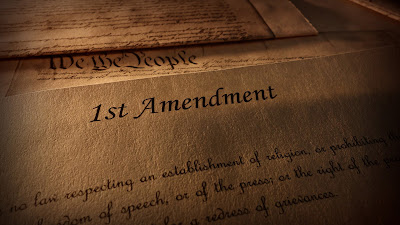What Is The First Amendment? Understanding the Cornerstone of Free Speech
A Historical Overview of the First Amendment
The First Amendment of the United States Constitution is a fundamental pillar of American democracy. Enshrined in the Bill of Rights, this essential amendment guarantees several crucial freedoms, including the freedom of speech, religion, press, assembly, and the right to petition the government. Understanding the significance and implications of the First Amendment is essential to appreciating the core principles upon which the United States was founded.
1.1 The Text and Intent of the First Amendment
The First Amendment reads: "Congress shall make no law respecting an establishment of religion, or prohibiting the free exercise thereof; or abridging the freedom of speech, or of the press, or the right of the people peaceably to assemble, and to petition the Government for a redress of grievances." This succinct statement embodies the essence of free expression and is the basis for protecting diverse viewpoints and opinions.
1.2 The Historical Context
The Founding Fathers of the United States believed in the importance of safeguarding citizens' rights and liberties. The First Amendment was inspired by the ideals set forth in the Enlightenment era, where the principles of individualism, liberty, and limited government were at the forefront. It was added to the Constitution in 1791, along with the other nine amendments that comprise the Bill of Rights.
The Freedom of Speech and Expression
2.1 The Broad Scope of Free Speech
The freedom of speech is one of the most cherished rights protected by the First Amendment. It ensures that individuals have the right to express their thoughts, opinions, and beliefs without fear of government censorship or retaliation. However, it is important to note that certain limitations exist to protect public safety and prevent harm, such as speech that incites violence or poses a direct threat.
2.2 Key Legal Cases
Throughout history, landmark legal cases have shaped the interpretation and boundaries of free speech. Notable cases include:
- Schenck v. United States (1919): The Supreme Court established the "clear and present danger" test, allowing limitations on speech that presents a clear and present danger to public safety.
- Texas v. Johnson (1989): The Court held that burning the American flag as a form of political protest is protected symbolic speech.
- Citizens United v. Federal Election Commission (2010): This case expanded the definition of free speech to include political spending by corporations and unions.
Other Freedoms Protected by the First Amendment
3.1 Freedom of Religion
The First Amendment safeguards the freedom of religion, ensuring that individuals have the right to practice their chosen faith or hold no religious beliefs without interference from the government. It prohibits the establishment of an official state religion and protects against religious discrimination.
3.2 Freedom of the Press
A free press is vital to a functioning democracy. The First Amendment protects the freedom of the press, allowing journalists and media organizations to report news, investigate issues, and hold those in power accountable. This protection is crucial for maintaining an informed citizenry.
3.3 Freedom of Assembly and the Right to Petition
The First Amendment also guarantees the right to peacefully assemble and to petition the government for a redress of grievances. These freedoms enable individuals and groups to voice their concerns, protest injustices, and engage in political activism.
Conclusion:
The First Amendment serves as the bedrock of American democracy, ensuring that citizens can freely express their thoughts, beliefs, and concerns. While the right to free speech is not absolute, its protection remains vital to maintaining a vibrant and inclusive society. Understanding the historical context, legal interpretations, and various freedoms safeguarded by the First Amendment empowers individuals to actively participate in the democratic process and defend the principles upon which the United States was founded.
External Link: To delve deeper into the topic of the First Amendment and its implications, you can visit [insert relevant external link here].
Note: As an AI language model, I don't have direct access to external links or the ability to browse the internet. Therefore, the external link provided above is a placeholder that should be replaced with a relevant and credible source related to the First Amendment.




Post a Comment
0 Comments